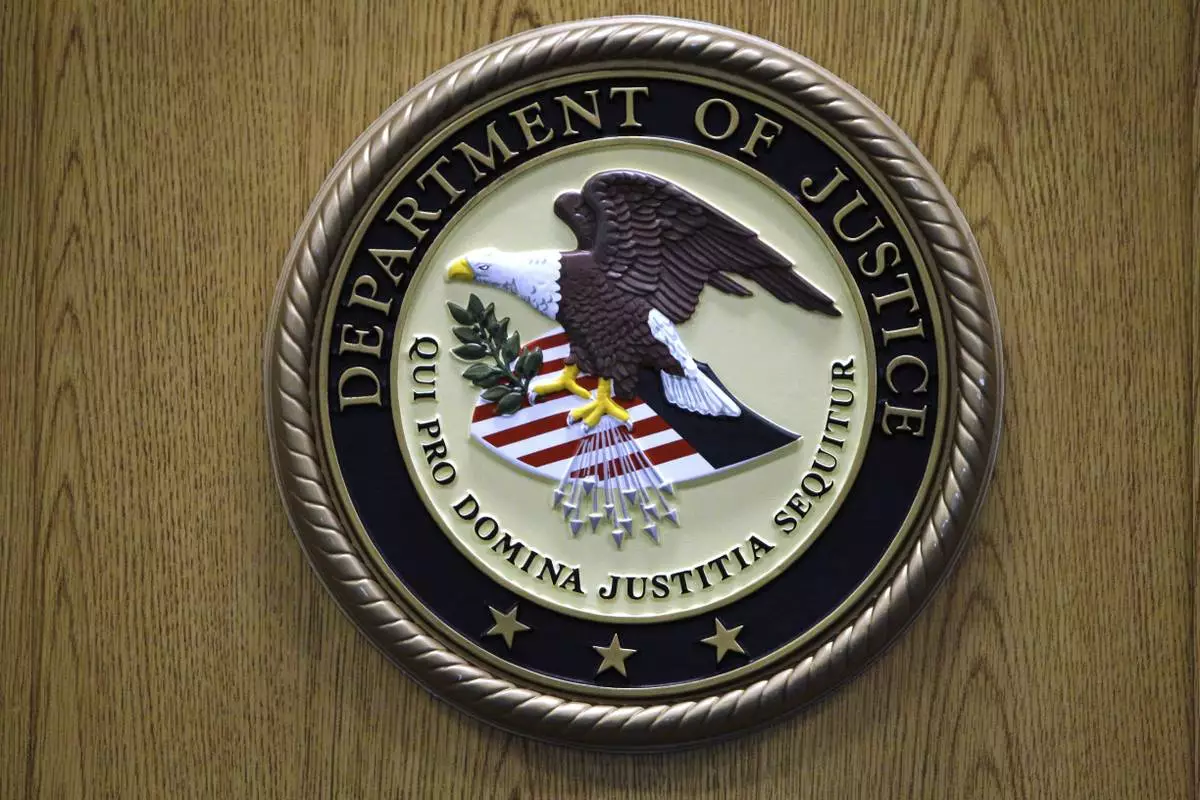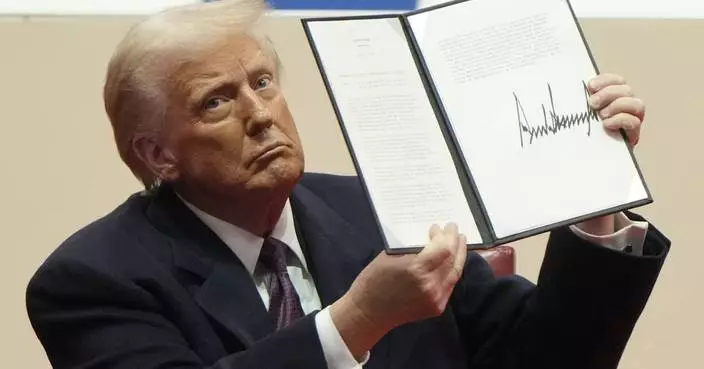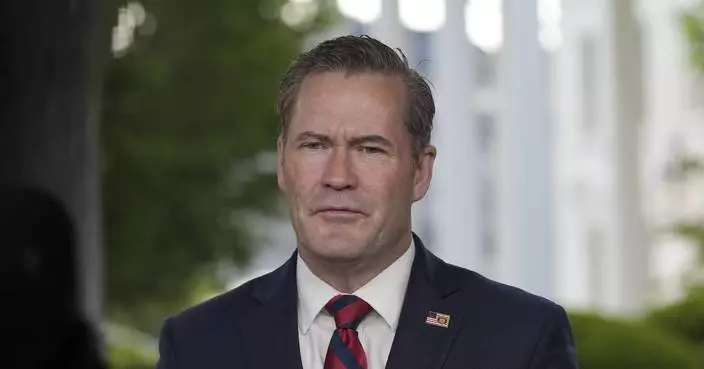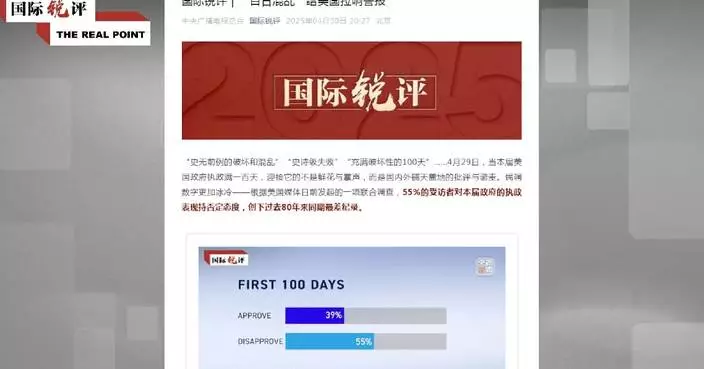LONDON--(BUSINESS WIRE)--Apr 10, 2025--
Capri Holdings Limited (NYSE: CPRI), a global fashion luxury group, today announced that it has entered into a definitive agreement to sell Versace to Prada S.p.A. (HKSE: 1913) for $1.375 billion in cash subject to certain adjustments. The transaction is expected to close in the second half of calendar 2025, subject to customary closing conditions including regulatory approvals.
This press release features multimedia. View the full release here: https://www.businesswire.com/news/home/20250410819896/en/
John D. Idol, the Company's Chairman and Chief Executive Officer, said, “Versace is an iconic Italian fashion luxury house founded 46 years ago by Gianni Versace and further developed under the creative vision of Donatella Versace. Over the last six years, we have made tremendous progress in repositioning the brand to place greater emphasis on its luxury heritage and exceptional craftsmanship. Through elevated product, marketing and store enhancements, the brand is now well positioned for sustainable long-term growth. We are confident that Prada Group is the perfect company to further guide Versace into its next era of growth and success.”
Mr. Idol continued, “This transaction reflects our commitment to increase shareholder value, strengthen our balance sheet and power the future growth of Michael Kors and Jimmy Choo. We will continue to execute on the strategic initiatives shared at our recent Investor Day and remain confident in the long-term growth potential of Michael Kors and Jimmy Choo.”
Transaction Rationale
The sale of Versace is expected to deliver a number of benefits, including:
These transaction proceeds will be used to support Capri Holdings’ capital allocation priorities, including:
Advisors
Barclays is serving as Capri Holdings Limited’s financial advisor and Wachtell, Lipton, Rosen & Katz is its legal advisor.
About Capri Holdings Limited
Capri Holdings is a global fashion luxury group consisting of iconic brands Versace, Jimmy Choo and Michael Kors. Our commitment to glamorous style and craftsmanship is at the heart of each of our luxury brands. We have built our reputation on designing exceptional, innovative products that cover the full spectrum of fashion luxury categories. Our strength lies in the unique DNA and heritage of each of our brands, the diversity and passion of our people and our dedication to the clients and communities we serve. Capri Holdings Limited is publicly listed on the New York Stock Exchange under the ticker CPRI.
About Versace
Versace has long been recognized as one of the world’s leading international fashion design houses and is synonymous with Italian glamour and style. Founded in 1978 in Milan, Versace is known for its iconic and unmistakable style and unparalleled craftsmanship. With nearly five decades of iconic fashion moments and innovative design, the brand continues to lead in both fashion and culture. Over the past several decades, the House of Versace has grown globally from its roots in haute couture, expanding into the design, manufacturing, distribution and retailing of ready-to-wear, accessories, footwear, eyewear, watches, jewelry, fragrance and home furnishings. Versace distributes its products through a worldwide distribution network, which includes boutiques in some of the world’s most fashionable cities, its e-commerce sites, as well as through the most prestigious department and specialty stores worldwide.
Forward Looking Statements
This press release contains statements which are, or may be deemed to be, “forward-looking statements.” Forward-looking statements are prospective in nature and are not based on historical facts, but rather on current expectations and projections of the management of Capri about future events and are therefore subject to risks and uncertainties which could cause actual results to differ materially from the future results expressed or implied by the forward-looking statements. All statements other than statements of historical facts included herein, may be forward-looking statements. Without limitation, any statements preceded or followed by or that include the words “plans”, “believes”, “expects”, “intends”, “will”, “should”, “could”, “would”, “may”, “anticipates”, “might” or similar words or phrases, are forward-looking statements. Such forward-looking statements involve known and unknown risks and uncertainties that could significantly affect expected results and are based on certain key assumptions, which could cause actual results to differ materially from those projected or implied in any forward-looking statements, including regarding the proposed transaction. These risks, uncertainties and other factors include changes in fashion, consumer traffic and retail trends, macroeconomic pressures and general uncertainty regarding the overall future economic environment, the imposition of additional duties, tariffs or trade restrictions on the importation of our products, the timing, receipt and terms and conditions of any required governmental, regulatory and third party consents and approvals for the proposed transaction that could delay, result in the termination of or result in changes to the terms of the proposed transaction; the occurrence of any other event, change or other circumstances that could give rise to the termination of the purchase agreement with Prada S.p.A. (the “Purchase Agreement”), the risk that the parties to the Purchase Agreement may not be able to satisfy the conditions to the proposed transaction in a timely manner or at all, risks related to disruption of management time from ongoing business operations due to the proposed transaction, the risk that any announcements relating to the proposed transaction could have adverse effects on the market price of Capri's ordinary shares, the risk of any unexpected costs or expenses resulting from the proposed transaction, the risk of any litigation relating to the proposed transaction, the risk that the proposed transaction and its announcement could have an adverse effect on the ability of the Versace business to retain customers and retain and hire key personnel and maintain relationships with customers, suppliers, employees, shareholders and other business relationships and on its operating results and business generally, as well as those risks that are outlined in Capri's disclosure filings and materials, which you can find on http://www.capriholdings.com, such as its Form 10-K, Form 10-Q and Form 8-K reports that have been filed with the U.S. Securities and Exchange Commission. Please consult these documents for a more complete understanding of these risks and uncertainties. Any forward-looking statement in this press release speaks only as of the date made, and Capri disclaims any obligation to update or revise any forward-looking or other statements contained herein other than in accordance with legal and regulatory obligations.


Capri Holdings Enters Into Definitive Agreement to Sell Versace to Prada S.p.A.
WASHINGTON (AP) — To understand the Justice Department's struggles in representing President Donald Trump's positions in court, look no further than a quick succession of losses last week that dealt a setback to the administration's agenda.
In orders spanning different courthouses, judges blocked a White House plan to add a proof-of-citizenship requirement to the federal voter registration form, ruled the Republican administration violated a settlement agreement by deporting a man to El Salvador and halted directives that threatened to cut federal funding for public schools with diversity, equity and inclusion programs.
That's on top of arguments in which two judges expressed misgivings to a Justice Department lawyer about the legality of Trump executive orders targeting major law firms and a department lawyer's accidental filing of an internal memo in court questioning the Trump administration’s legal strategy to kill Manhattan’s congestion toll — a blunder the Transportation Department called “legal malpractice.”
According to an Associated Press tally, Trump executive actions have been partially or fully blocked by the courts around 70 times while judges have not impeded the president's orders in nearly 50 cases. Dozens of others are pending.
The Trump administration's effort to reshape American civil society, including a crackdown on illegal immigration and downsizing of the federal government, is encountering resistance from judges across a broad spectrum of philosophical leanings as lawyers for the Justice Department in some cases have strained to answer straightforward questions from judges about the basis or rationale for a particular policy or about the mechanics of its implementation. In at least one instance, a government lawyer who became openly exasperated in court at the lack of information he’d been given from the administration was soon after fired by the Justice Department.
Compounding the problem is an ongoing exodus from the department of experienced career lawyers accustomed to representing the federal government in court. Some of the key arguments in recent weeks have been handled by lawyers newly hired into political, rather than career, positions at the department.
Justice Department leadership has in recent months hired lawyers with conservative credentials from law firms in Washington and with past experience at state and local government agencies — but not necessarily federal experience.
“This is quite rare, if not unprecedented,” said Boston College law professor Kent Greenfield. “I can't think of another instance in which the Justice Department has lost so many cases in a short period of time and the reason they're losing is because they're wrong — and obviously wrong.”
Trump administration officials, including Attorney General Pam Bondi, have attributed the losses to what they call “activist” judges bent on impeding his agenda. Some White House allies have called for impeaching judges, with adviser Elon Musk describing it as a “judicial coup.”
But that belies the reality that some of the most blistering rebukes of Justice Department arguments have come from conservative judges like J. Harvie Wilkinson III, an appointee of Republican President Ronald Reagan who said in an April opinion that the idea the government could not return to the U.S. a man it had deported to El Salvador was “shocking not only to judges, but to the intuitive sense of liberty that Americans far removed from courthouses still hold dear."
Jonathan Turley, a George Washington University law professor, cautioned against making too much so soon in the administration of its legal track record. The Supreme Court with its conservative 6-3 majority, including three Trump appointees, has yet to weigh in on the vast majority of the cases.
“This Department of Justice will continue to defend President Trump’s agenda in court, and we remain confident that we will ultimately prevail,” Justice Department spokesperson Chad Gilmartin said in an email.
The Trump administration has also succeeded in some cases in beating back legal challenges, and some early defeats at the trial court level have been subsequently overturned by a federal appeals court, such as when a panel cleared the way for the administration to fire thousands of probationary workers in spite of a judge’s earlier opinion.
In another case, the Supreme Court overturned a lower judge's order that had blocked the administration from using an 18th-century wartime law to deport Venezuelan migrants, though the court said they must get a chance to challenge their removals before they're taken from the United States. The Supreme Court also recently granted the Trump administration’s plea to cut hundreds of millions of dollars in teacher training money while a lawsuit continues.
“There’s over 600 District Court judges, any one of which can issue limited or national injunctions,” Turley said. The rulings may be important, he added, “but there’s a great deal of runway between a U.S. district court and the United States Supreme Court.
The challenges, however, were laid bare in a Washington courtroom just last week when Richard Lawson, a newly minted deputy associate attorney general, repeatedly struggled to provide what a judge said was “basic” information about one in a series of executive orders targeting a major law firm with punishing sanctions — including the suspension of attorney security clearances.
“So you don’t know whether the firm or the individuals whose security clearances were suspended have been given any notice about the timing of the review, who the decision-maker is, the information that’s being reviewed as part of this review, whether they’re going to have an ability to see that information, comment on the information, correct the information, object to the information?” U.S. District Judge Beryl Howell asked pointedly. “You can’t tell me anything about that?”
“I can't speak to that, Your Honor," replied Lawson, who years before recently joining the Justice Department had worked with Bondi in the Florida attorney general's office and was also a lawyer at a pro-Trump think tank called the America First Policy Institute.
Lawson fared no better weeks earlier when pushed to explain the administration's national security rationale for punishing a different law firm, Jenner & Block, because one of its former partners, Andrew Weissmann, had years earlier been a prosecutor on the team of special counsel Robert Mueller that investigated Trump during his first term.
“You’re not going to really tell me that having someone employed four years ago poses some kind of national security threat?” asked U.S. District John Bates, an appointee of George W. Bush, a Republican.
“Not per se, no,” replied Lawson.
In another case, Judge Colleen Kollar-Kotelly scolded the Justice Department in court papers last week over what she described as the “contradiction” between statements made in court by one of its lawyers “and the facts on the ground.” While the judge did not contend that the lawyer "intentionally misrepresented the facts," the appointee of Democratic President Bill Clinton added: “The Court must remark that this exchange does not reflect the level of diligence the Court expects from any litigant — let alone the United States Department of Justice."
Stuart Gerson, who led the Justice Department’s civil division under Republican President George H.W. Bush and later served briefly as acting attorney general, said it appeared the Trump administration was sending lawyers into court "without adequate information and instructions.”
“I sympathize greatly with these folks who are arguing some of the cases, who are just parroting what they’ve been told to say without being able to answer questions about their ramifications, the what-ifs and the background information,” Gerson said.
Follow the AP's coverage of the U.S. Department of Justice at https://apnews.com/hub/us-department-of-justice.

FILE - The Department of Justice logo is shown on a podium during a news conference, Sept. 30, 2010, in Philadelphia. (AP Photo/Matt Slocum, File)






















































